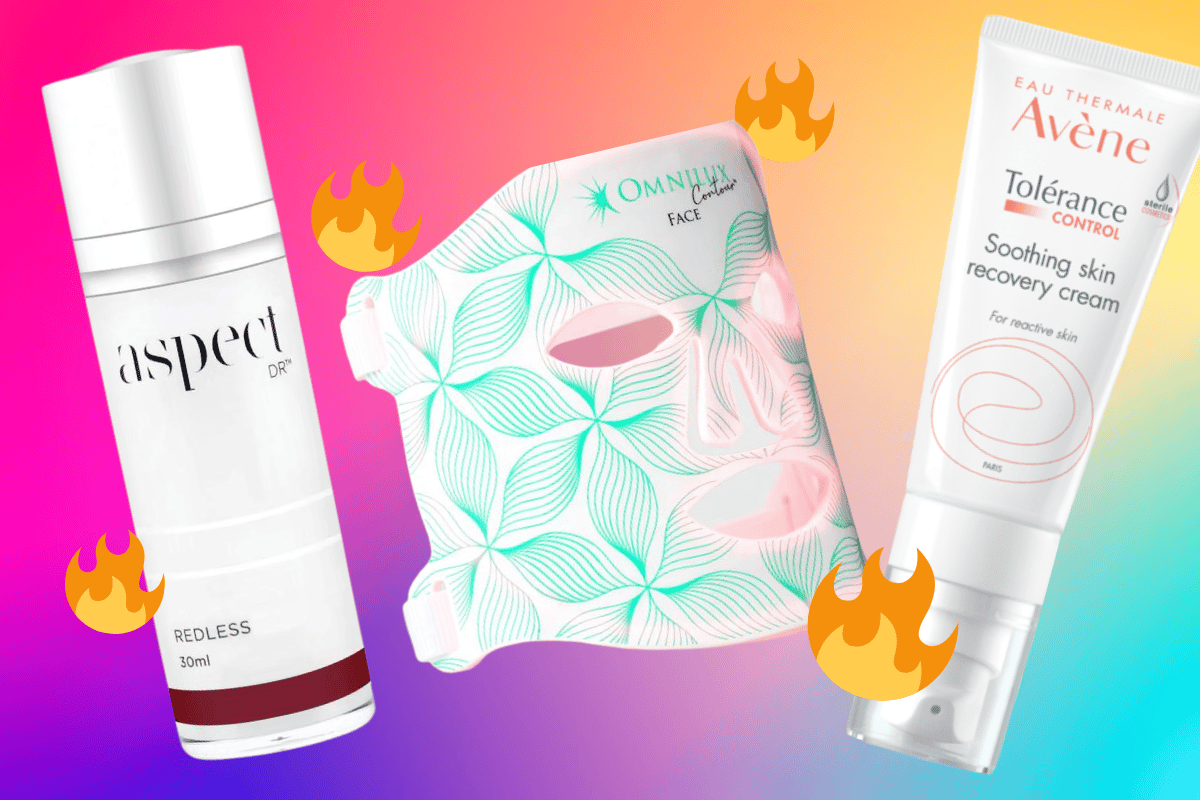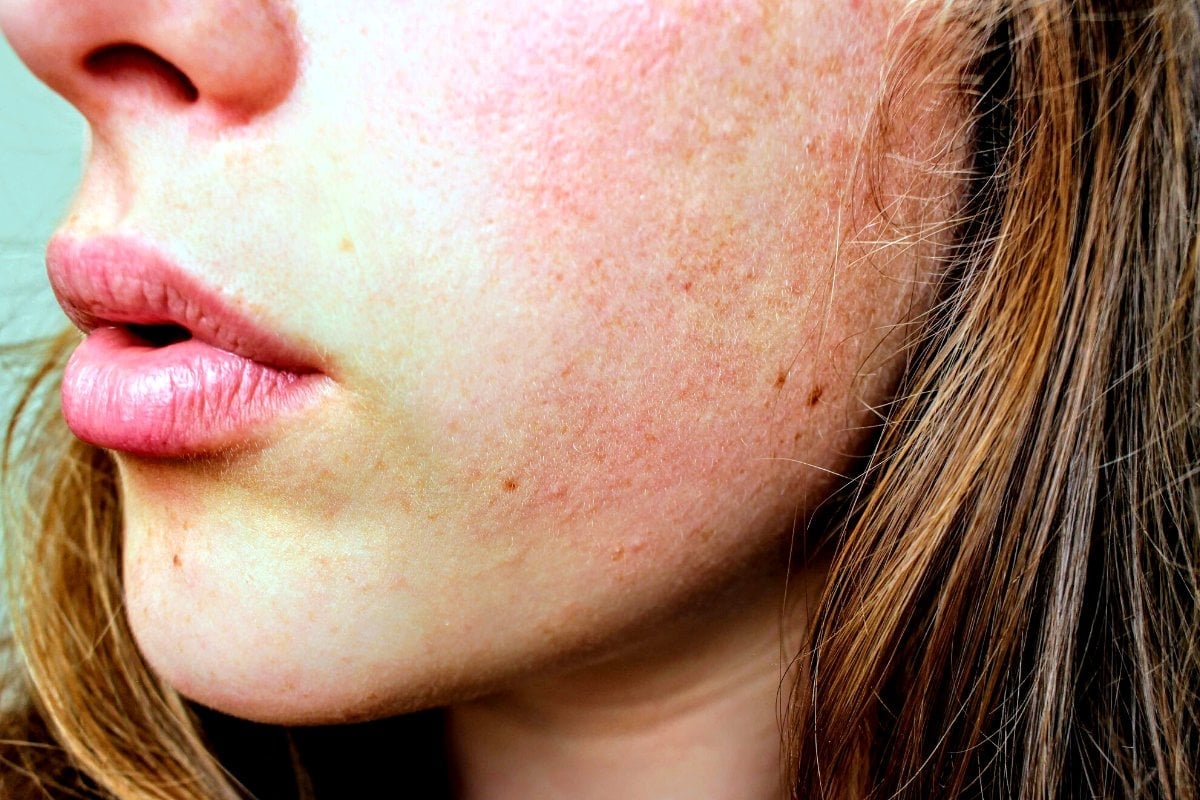
If you have rosacea, you'll know just how fickle of a skin condition it can be.
Redness. Inflammation. Irritation. Bumps. That general uncomfortable feeling.
But for such a common condition (there's more than 500,000 cases per year in Australia), there's actually a surprising amount of confusion around rosacea.
While there's plenty of supposed 'rules' and dos and don'ts floating around, when it comes to potential triggers, treatments and remedies, the reality is that managing rosacea isn't easy.
Watch: Here are seven ways to improve your skin while sleeping. Post continues below.
Because in case you didn't already know, there's currently no cure for rosacea. It all comes down to management.
This means you can end up trying and spending money on a lot of different things, only to see zero improvements.
That's why we decided to ask an expert for some actually useful advice.
Here, Dr Imaan Joshi shares the very best way to manage the condition, including what kinds of things rosacea sufferers should do (and what they should avoid).

Top Comments